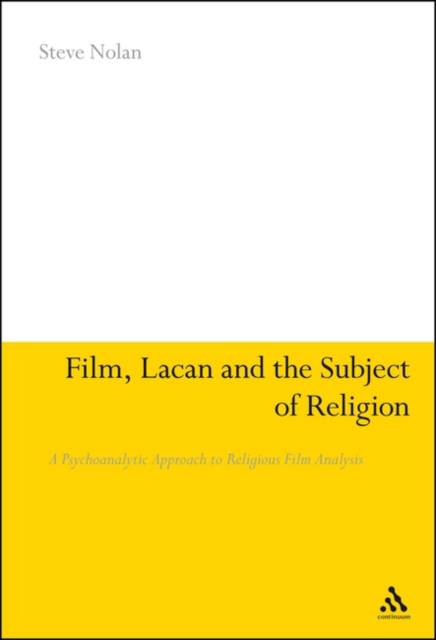
- Retrait gratuit dans votre magasin Club
- 7.000.000 titres dans notre catalogue
- Payer en toute sécurité
- Toujours un magasin près de chez vous
- Retrait gratuit dans votre magasin Club
- 7.000.0000 titres dans notre catalogue
- Payer en toute sécurité
- Toujours un magasin près de chez vous
Film, Lacan and the Subject of Religion
A Psychoanalytic Approach to Religious Film Analysis
Steve Nolan
Livre broché | Anglais
88,45 €
+ 176 points
Format
Description
In their study of religion and film, religious film analysts have tended to privilege religion. Uniquely, this study treats the two disciplines as genuine equals, by regarding both liturgy and film as representational media. Steve Nolan argues that, in each case, subjects identify with a represented 'other' which joins them into a narrative where they become participants in an ideological 'reality'.
Finding many current approaches to religious film analysis lacking, Film, Lacan and the Subject of Religion explores the film theory other writers ignore, particularly that mix of psychoanalysis, Marxism and semiotics - often termed Screen theory - that attempts to understand how cinematic representation shapes spectator identity. Using translations and commentary on Lacan not originally available to Screen theorists, Nolan returns to Lacan's contribution to psychoanalytic film theory and offers a sustained application to religious practice, examining several 'priest films' and real-life case study to expose the way liturgical representation shapes religious identity. Film, Lacan and the Subject of Religion proposes an interpretive strategy by which religious film analysts can develop the kind of analysis that engages with and critiques both cultural and religious practice.Spécifications
Parties prenantes
- Auteur(s) :
- Editeur:
Contenu
- Nombre de pages :
- 232
- Langue:
- Anglais
Caractéristiques
- EAN:
- 9781441133151
- Date de parution :
- 22-12-11
- Format:
- Livre broché
- Format numérique:
- Trade paperback (VS)
- Dimensions :
- 156 mm x 234 mm
- Poids :
- 331 g

Les avis
Nous publions uniquement les avis qui respectent les conditions requises. Consultez nos conditions pour les avis.






